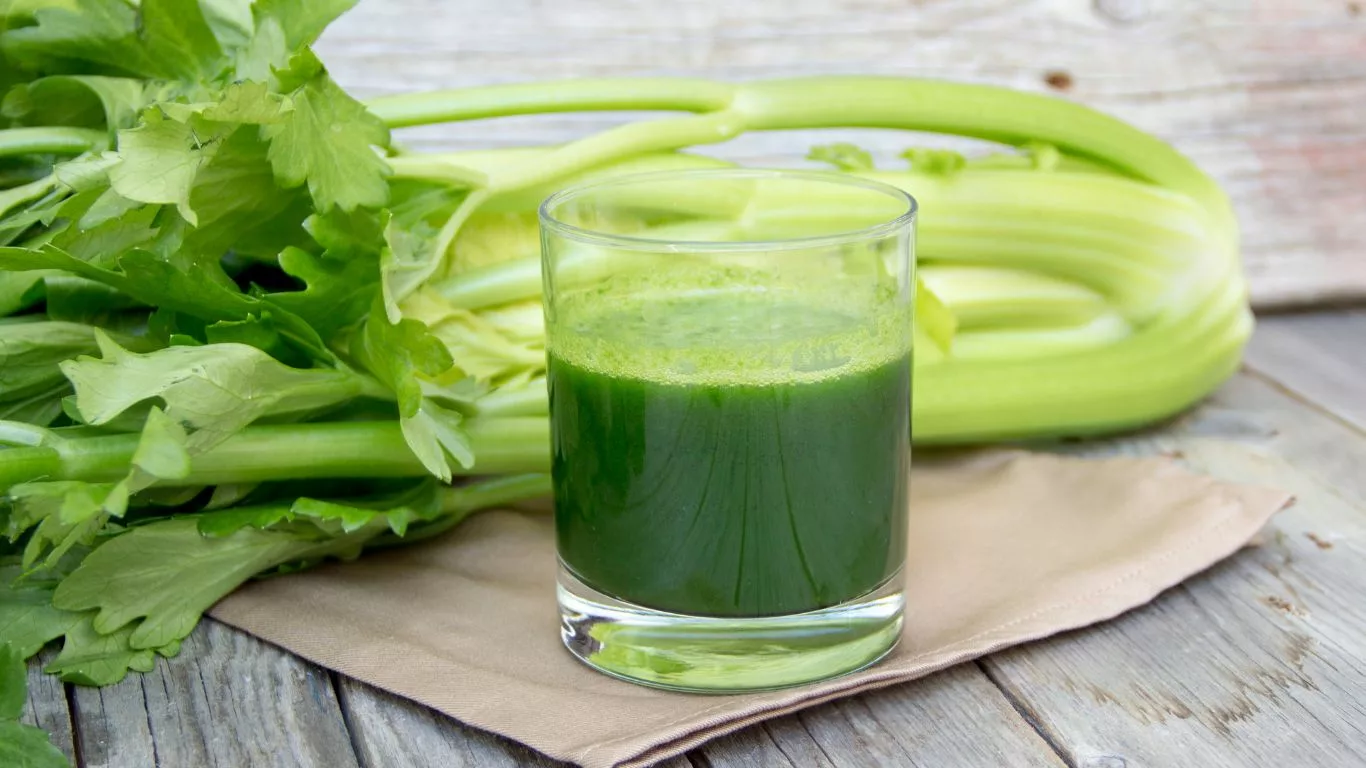Celery Juice for Acid Reflux: A Refreshing Natural Ally for Digestive Relief
Celery juice wasn’t on my radar when I first started managing my acid reflux. Honestly, I thought of it as a bland garnish—not a healing beverage. But after hearing about its benefits for hydration, inflammation, and digestion, I gave it a shot. And surprisingly? It’s one of the few juices I can sip regularly without any flare-ups. In fact, it’s become a quiet game-changer in my reflux routine.
Why Celery Juice Deserves a Closer Look

Let’s be clear: acid reflux, or GERD, happens when stomach acid travels back up into the esophagus, causing burning, discomfort, and even long-term tissue damage. Many acidic juices—like citrus, tomato, and even cranberry—tend to make things worse. But celery juice is a unique exception.
Here’s why:
- It’s naturally alkaline – Celery helps neutralize stomach acid, making it gentler on the gut than more acidic fruits or vegetables.
- It’s hydrating – High water content (over 90%) helps dilute acid and support smooth digestion.
- Anti-inflammatory compounds – Celery contains apigenin and luteolin, both known to reduce inflammation in the digestive tract.
For many of us with GERD, hydration and inflammation control are half the battle. Celery juice helps on both fronts.
Personal Experience: How Celery Juice Fits Into My Routine

I started drinking celery juice as an experiment—one small glass in the morning before breakfast. Within a few days, I noticed less bloating and a lot less pressure in my upper abdomen after meals. It wasn’t a miracle cure, but it was a noticeable shift.
Here’s what I learned from trial and error:
- Always drink it fresh – Pre-bottled versions tend to oxidize fast and lose potency.
- Keep it simple – Just celery, nothing else. Adding acidic fruits like lemon or green apple defeats the purpose for GERD relief.
- Start with a small portion – Around 4–6 oz per day is usually enough.
I also found it pairs beautifully with a light, reflux-safe breakfast—like oatmeal or a banana—especially when you want to start your day gently.
How to Make Celery Juice That Supports Reflux Relief

Fresh celery juice is incredibly easy to make:
- Take 4–5 organic celery stalks and rinse thoroughly.
- Run through a juicer or blend with a bit of water, then strain through a fine mesh sieve or nut milk bag.
- Drink immediately on an empty stomach, or 20–30 minutes before a light meal.
Optional: Add a splash of filtered water if the taste is too strong at first. You’ll get used to it quickly—trust me, it grows on you.
Why Celery Juice Works for Some—But Not Everyone

Every digestive system is different. While celery juice has worked wonders for some of us, others may find it too fibrous or even too bitter to handle. If you’re especially sensitive, try straining it more finely or drinking half the amount to start.
And if you’re in the middle of a severe reflux episode or dealing with esophageal inflammation, even alkaline juices should be introduced slowly. Always listen to your body and ease in gradually.
How It Compares to Other GERD-Friendly Juices

Celery juice holds its own among other reflux-safe juices. It’s less soothing than aloe vera but more hydrating than apple. It doesn’t have the gut-repairing amino acids of cabbage juice, but it’s gentler and easier to digest for many people.
If you’re curious about how celery stacks up next to other natural juices for GERD, check out our guide on the best juices for acid reflux. It covers a wide range of options, from mild and alkaline to fiber-rich and fermented.
Final Thoughts: A Simple Green Boost Worth Trying

Celery juice may not be the flashiest drink in your fridge, but it’s definitely one of the most functional. Its light alkalinity, high water content, and anti-inflammatory benefits make it a smart option for many living with GERD. For me, it’s become a go-to morning ritual that supports smoother digestion and keeps things calm throughout the day.
If you’re exploring natural, gentle ways to manage reflux, this is one juice worth testing for yourself. And if you’re looking for even more options to rotate in, take a look at our complete list of reflux-friendly juices to build a routine your gut will thank you for.

Camellia Wulansari is a dedicated Medical Assistant at a local clinic and a passionate health writer at Healthusias.com. With years of hands-on experience in patient care and a deep interest in preventive medicine, she bridges the gap between clinical knowledge and accessible health information. Camellia specializes in writing about digestive health, chronic conditions like GERD and hypertension, respiratory issues, and autoimmune diseases, aiming to empower readers with practical, easy-to-understand insights. When she’s not assisting patients or writing, you’ll find her enjoying quiet mornings with coffee and a medical journal in hand—or jamming to her favorite metal band, Lamb of God.







